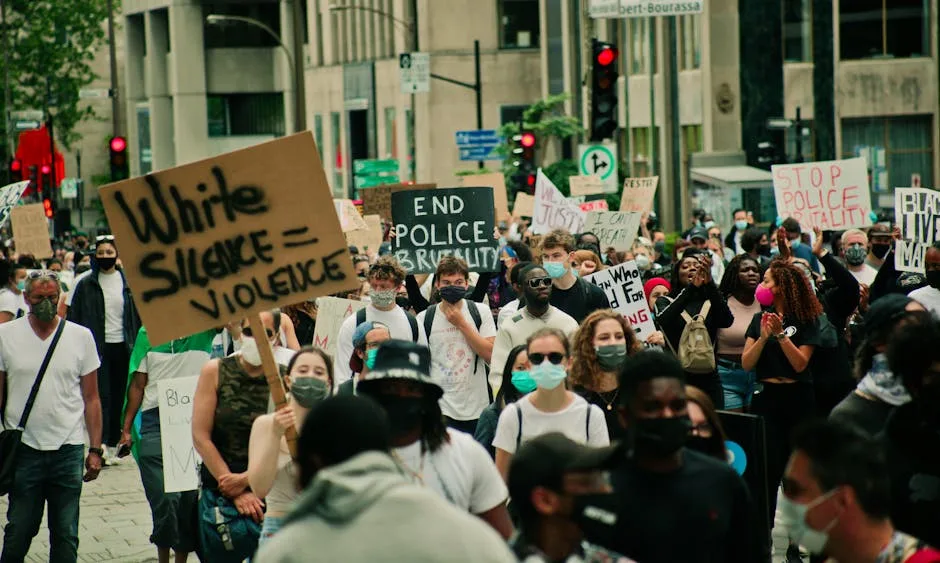
The ongoing boycott against Target, led by Rev. Jamal Bryant of Atlanta’s New Birth Missionary Baptist Church, has escalated following the retailer’s decision to phase out diversity, equity, and inclusion (DEI) initiatives. During his Easter Sunday service, Bryant reaffirmed the boycott’s continuation, stating,
“We ain’t going back in there.”
The campaign, initially a 40-day “Target FAST” boycott during Lent, has now transitioned into an indefinite full boycott due to unmet demands1.
Background and Key Demands
Target’s January 2025 announcement to dismantle DEI programs—including its $2 billion pledge to Black-owned businesses and the Racial Equity Action and Change (REACH) initiative—sparked immediate backlash. The decision followed President Trump’s executive order opposing DEI policies, which the administration labeled as “discriminatory”2. Bryant’s coalition has presented four non-negotiable demands: reinstating DEI commitments, fulfilling the $2B investment pledge by July 31, partnering with historically Black colleges and universities (HBCUs), and banking with Black-owned financial institutions. While Target agreed to the second demand, it has remained silent on the others3.
Financial and Operational Impact
The boycott has significantly affected Target’s bottom line. According to Forbes, the company’s stock plummeted to a five-year low of $94 per share, with an 11% drop in foot traffic and a 9% decline in web traffic4. Over 110,000 individuals have signed Bryant’s boycott pledge, and civil rights leaders like Ben Crump and Nina Turner have publicly endorsed the campaign. Crump’s social media post framed the boycott as a “defining moment,” while Turner warned against corporations treating allyship as a conditional strategy5.
Broader Corporate and Political Context
Target’s situation reflects a wider trend of corporations scaling back DEI efforts under political pressure. Similar boycotts have targeted Walmart, Amazon, and General Mills, though analysts note Target’s diverse customer base makes it uniquely vulnerable to backlash6. The retailer now faces potential shareholder actions and sustained activism, with Bryant vowing to escalate pressure until all demands are met. Meanwhile, the Trump administration has celebrated corporate DEI rollbacks as a victory against what it calls “divisive” policies7.
Future Implications
The standoff highlights the growing tension between corporate social responsibility and political influence. Target’s next steps—whether capitulation or defiance—could set a precedent for how businesses navigate DEI amid polarized governance. For now, the boycott remains a potent symbol of grassroots economic activism, with Bryant’s coalition leveraging consumer power to challenge systemic inequities8.
References
- “Target Boycott Intensifies Over DEI Rollback: Key Updates,” Newsweek, 2025. [Online]. Available: https://www.newsweek.com.
- “Trump Executive Order Targets DEI Programs,” ABC News, 2025. [Online]. Available: https://abcnews.go.com.
- “Pastor Jamal Bryant Extends Target Boycott,” Fox 5 Atlanta, 2025. [Online]. Available: https://www.fox5atlanta.com.
- “Target Stock Hits 5-Year Low Amid Boycott,” Forbes, 2025. [Online]. Available: https://www.forbes.com.
- “Civil Rights Leaders Back Target Boycott,” CBS News, 2025. [Online]. Available: https://www.cbsnews.com.
- “DEI Rollbacks Trigger Wave of Boycotts,” Newsweek, 2025. [Online]. Available: https://www.newsweek.com.
- “White House Praises Corporate DEI Cuts,” ABC News, 2025. [Online]. Available: https://abcnews.go.com.
- “Target’s DEI Reversal Sparks Activist Backlash,” CBS News, 2025. [Online]. Available: https://www.cbsnews.com.





